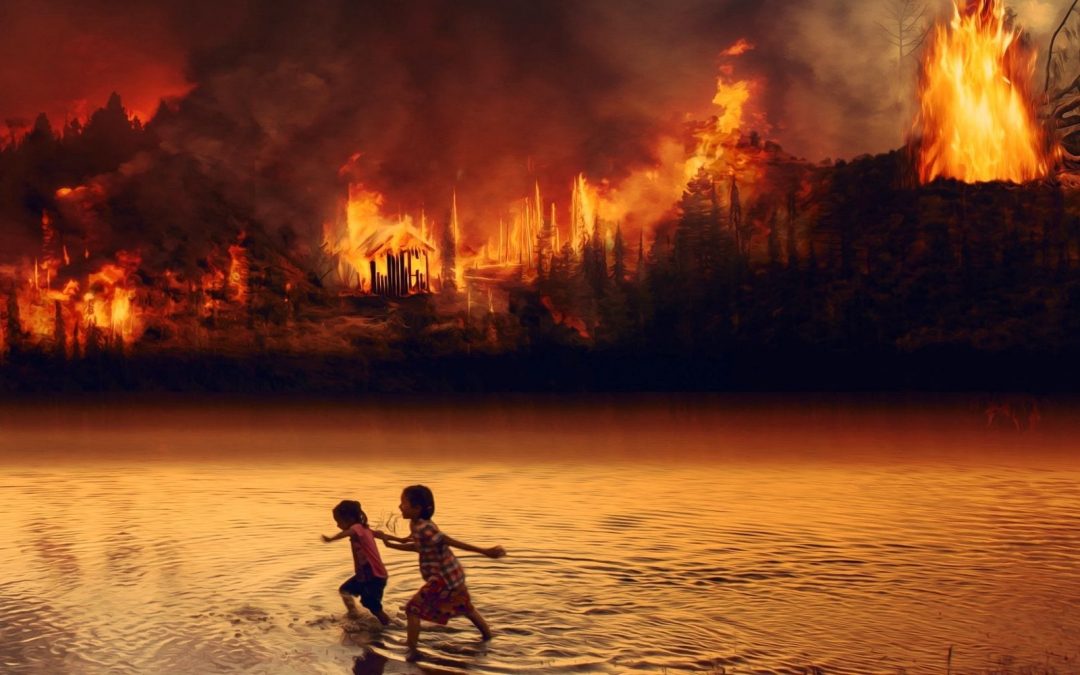Brazil is getting more attention in recent months, primarily because of the massive fires raging in the Amazon rainforest, most of which is within Brazil’s boundary but also stretches into eight neighboring countries.
While such fires have been a regular occurrence for years, over 72,000 fires have broken out in 2019, an increase of 84% over the same period in 2018.
Sometimes referred to as the earth’s lungs, the forest supplies some 20% of the world’s oxygen and sequesters a quarter of the carbon dioxide absorbed by the world’s forests.
But the forest is also home to an estimated 300,000 indigenous people belonging to hundreds of distinct tribes.
Brazil’s 1988 constitution explicitly stipulates that population’s claim to the land.
The Amazon, as has been said, is not burning – it is being burned. And this is bad news, not just for those living in the region but for the entire planet.
The reasons for the forest’s scorching, along with the displacement of its indigenous residents, are as old as its geologic formation: the seemingly inexhaustible demands for “development.”
Meaning, more stuff. Growth as a measure of girth. The extractive impulse, where calculations of progress are left in the hands of corporations and financiers and those doing their bidding.
Cattle farmers and plantations want to squeeze more “productivity” from the land. Loggers want its timber. Miners want its metals, minerals and gemstones. The quickest way to gain access is to torch it.
Adding to these damages are droughts compounded by climate change. Normally “fire-proof” rainforests are more susceptible to burning.
Environmental activists and advocates for the health of local communities face growing peril. In 2018, in Brazil alone, 70 were murdered. Few assailants are brought to justice.
Brazil’s new president Jair Bolsonaro – referred to as the “Trump of the Tropics” for his right-wing proclivities – made accelerated economic development of the rainforest a key pledge in his 2018 presidential campaign; existing environmental laws are routinely ignored.
Prior to the Western media’s coverage of the Amazon fires, which have now largely moved on to other matters, North Americans knew little of Brazil.
Some recall coverage of the 2016 Olympic Games there. Some know about the extravagant Carnival parades, overshadowing the Mardi Gras festivities in New Orleans just prior to Lent; others know about famed soccer player, Pelé, or the country’s renowned Ipanema and Copacabana beaches.
Prior to my trip to Rio de Janeiro several years ago for a speaking assignment, I didn’t know that more African slaves disembarked in Brazil than in any other country during the 16th- through 18th-century Atlantic slave trade.
I would venture that even fewer of my fellow citizens know that the U.S. encouraged, organized and supplied a 1964 coup d’état creating a military dictatorship that ruled Brazil for 21 years.
Declassified documents released in 1974 revealed that the U.S. government actively plotted to overthrow the democratically elected government of President João Goulart.
This involved orchestration with key Brazilian military leaders and the resources of a U.S. naval carrier group, which transported ammunition, oil, gasoline and other war material.
Paramount among U.S. fears of the Goulart government was its relative independence, a risky stance in the geopolitics of the Cold War.
Those fears included Goulart’s promise to remove Western companies’ control of Brazilian oil production, along with other social and economic reforms, and the ever-present U.S. fear of communism.
Latin America “has always understood that governments which we recognize and support stay in power,” said Under-Secretary of State Robert Olds in 1927 testimony to Congress, “while those we do not recognize and support fail.”
Of special note is the way religious piety is manipulated during this history.
In the months leading up to the coup, a coalition of right-wing sectors in Brazil organized a march to protest Goulart’s rule, under the banner of “Marches of the Family with God for Freedom.”
Then, during Bolsonaro’s campaign, his party’s popular motto was “Brazil above everything, God above everyone” (eerily parallel to Trump’s “America First” slogan).
During a 2016 trip to Israel, Bolsonaro, a professed Catholic, asked prominent Pentecostal pastor (and head of Brazil’s Christian Social Party) Everaldo Pereira to baptize him in the Jordan River in a flagrant attempt to cement his political ties to Brazil’s sizeable, deeply conservative evangelical Christian community.
In his 2009 book, “The Future Church,” journalist John L. Allen Jr. noted that in 1969, then-New York Governor Nelson Rockefeller predicted that “The Catholic Church has stopped being a trusted ally of the U.S., and on the contrary is transforming itself into a danger because it raises the consciousness of the people.”
The governor went on to recommend that the U.S. support fundamentalist Protestant groups in Latin America.
A few years later, in 1982, a group of President Ronald Reagan’s advisors, meeting in Santa Fe shortly before Reagan’s trip to Rome for a meeting with the pope, openly discussed how to deal with theological trends in Latin America.
In their Santa Fe Document, they wrote “American foreign policy must begin to counterattack liberation theology.”
It accused liberation theologians of using the church “as a political weapon against private property and productive capitalism by infiltrating the religious community with ideas that are less Christian than Communist.”
Clearly, the mantle of authority granted to “Christ the Redeemer” is contested by conflicting loyalties and incompatible claims. The stakes are high, and the spirits must be tested (see 1 John 4:1).
The desolation caused by the fires could be a mirror into which not just Brazilians but all of us, particularly those of us in the U.S., can peer to get a more accurate picture of who we have become.
And, maybe, of whom, for whom and by whom we wish to be.
Curator of prayerandpolitiks.org, an online journal at the intersection of spiritual formation and prophetic action, and author of, most recently, In the Land of the Willing: Litanies, Prayers, Poems, and Benedictions. He was the founding director of the Baptist Peace Fellowship of North America and founding co-pastor of Circle of Mercy Congregation in Asheville, North Carolina.


